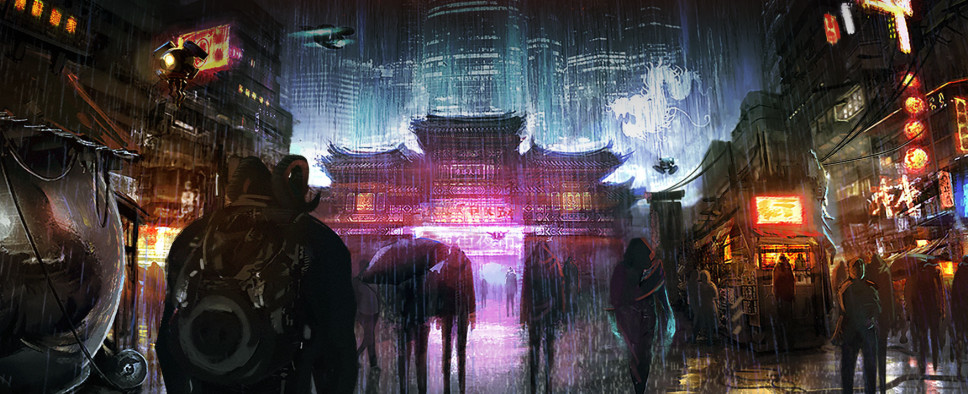Shadowrun: Hong Kong Interview
-
Category: News ArchiveHits: 1941

The editors over at Rock, Paper, Shotgun have garnered a fistful of questions from their community and have presented them to the team at Harebrained Schemes, the result of which is this interview covering a range of topics about Shadowrun: Hong Kong and the role-playing game series as a whole. Check it out:
RPS: This is kind of my question rather than a reader's, but by moving to an Eastern setting I guess maybe you're moving closer to more established cyberpunk tropes. It was kind of an open book in Berlin, but there's much more established fiction and tropes to take from here. How much do you play with or against that?
Jordan: If you're looking at the Blade Runner interpretation of cyberpunk and the dominance of Asian culture, which was purely an outbreak of the era in which cyberpunk was originally written, right? At that point everybody believed Japan was going to own the world. They were wrong.
Mitch: China's going to rule the world!
Jordan: Yeah. We're probably wrong about that too. But I do think that though it was Western-created, it dressed itself in a lot of Asian tropes. In that era, we too had a very strong Asian dominance in the world. You had Japan controlling a fair chunk of California, for similar reasons of the era it was written in. And the currency of the world was called New Yen for the same reason.
I think Shadowrun is always going to have a solid foot in Asian culture. It's not alien for us to go there with this game and this campaign. It's kind of woven into the context of Shadowrun all the way through. Even phrases like the Street Samurai [clarification this is a term for a character type which exists across the Shadowrun universe, rather than something added for Hong Kong]. It really it is a merging of aboriginal cultures from around the world. One of the premises of Shadowrun is that magic empowers aboriginal cultures, and so that's why we have the Native Americans as such a strong thing, but that's also true with the Shamanistic nature of Japanese magic as well, as it comes back into the forefront.
Mitch: Also, just like in Berlin, the Hong Kong setting, especially the 2056 setting, has been described and written about, but not in intensive detail. Which is perfect for us, there's a lot of great stuff for us to trigger our imaginations and inspire us, but not too much that it bogs us down in already-written detail. It's a great balancing act, just like it was for Berlin in Dragonfall.
...
RPS: Morlock says (I would just like to know where they see the series going. Are there any plans to at some point switch engines? The stronger dedication to PC opens up new options. I would also like to know whether there are any new plans for the editor and whether they ever considered multiplayer (perhaps with Neverwinter-Nights-type DMing)?)
Mitch: That was seven questions in one. I'll take the first one. For me personally, interacting with the world Jordan created is the exciting part. In success, what I'd like to do is travel the globe, showing the world of Shadowrun, how magic returning to a cyberpunk world is affected by different cultures, and how it affects different cultures. There have been Shadowrun sourcebooks written in just about every major city over the globe, and showing different aspects of how this is a global thing, that's what's exciting to me.
Jordan: To me, I think the locations are great backdrops, but it's all got to come down to great stories of the characters and for the players. I think so long as we keep coming up with great stories and characters and interesting choices, we'd love to keep making them.
In terms of big things like adding multiplayer or co-op, those are really big feature sets. The current engine wasn't built to go there that easily, and so that's going to require either us doing really well and being able to fund it, and believe there's a big enough audience, or we bring a much bigger opportunity to crowd-funding. We're a very small studio. We're kind of bootstrapping the entire thing.

